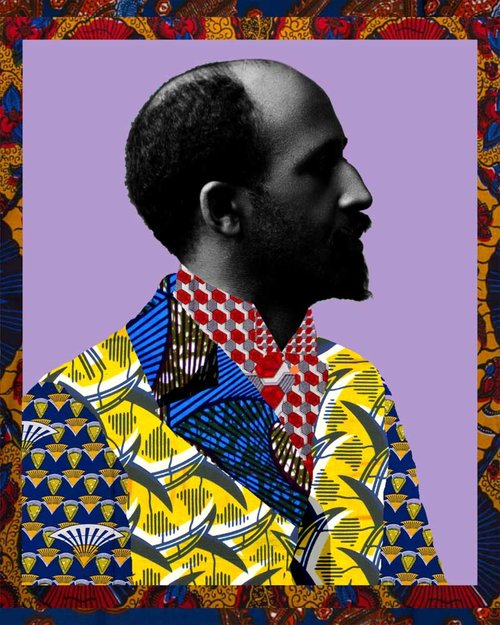|
|
|
Cross-posted by RACE.ED
‘We are now in the age of Du Bois’, declared Aldon Morris in his widely acclaimed study, The Scholar Denied: W. E. B. Du Bois and the Birth of Modern Sociology. In this, Morris meticulously charts the intellectual contribution of Du Bois (1868-1963) to the social sciences broadly conceived, and sociology in particular, to argue that this remarkable figure could no longer been treated as peripheral, or an ‘add on’. After all, few sociologists pioneered as much as Du Bois, including in, amongst other areas, both quantitative and qualitative methodologies, especially social statistics and urban ethnography, reconciling questions of political economy with social movements (not least in charting the suppression of Atlantic slavery), as well as foregrounding relationships between the self and society, and doing so in ways that prefigure questions later posed in the politics of recognition. For these reasons I am not alone in arguing that Du Bois has bequeathed to sociology a cluster of normative categories that compel us to move beyond a kind of formalistic inquiry, and through which we might be more open to uncovering sometimes submerged features of social life (1).
And yet, all said, Morris’s accolade remains wishful thinking.
I say this because amongst the resurgence of interest in Du Bois’ work, including his designation ‘as perhaps the greatest public sociologist of the twentieth century’, what we can observe are forms of ‘inclusion without reconstruction based on an acknowledgement of the difference that inclusion makes’. That is to say, Du Bois’ arrival in some quarters has not come with a broader willingness to revise an overwhelming white sociological canon that prevails in the mainstream configuration of US and European sociology. Described as a continuing ‘sociological segregation’, Back and Tate have charted something like this in their discussion of not only Du Bois but also of Stuart Hall (1932-2014) too. They characterise the tendency as an active omission of a broader range of sociological work, something that ultimately ‘weakens the field as a whole, not only for those to whom it offers a racially unequal place at the table of ideas’. For sociologists of race, this is very familiar territory indeed. Ask any such scholar and they may share numerous examples in which the concepts in use, concepts often forged and adapted in more than a century of critical dialogue with mainstream social science, are deemed ambiguous at best, and not infrequently ‘made into a decadent positionality in need of remedy and conceptual clarity’. Take the related categories of white supremacy and white privilege. The year 2020 marked a centenary of the publication of ‘The Souls of White Folk’, a short essay in Du Bois’s Darkwater, and in which he brought together key strands from his earlier thought. ‘The discovery of personal whiteness among the world’s peoples is a very modern thing’, he wrote, and through which has been claimed ‘the ownership of the earth forever’, where ‘the black world gets only the pittance that the white world throws it disdainfully’. In a typically absorbing account that traverse’s scales of the micro, meso and macro, questions of agency and structure, and matters of capital and community, we find an expansive concept, but one attuned to the phenomena it is describing. Attuned to the phenomena does mean limited to the time, however, for the discussion resonates in the present precisely because it’s explanatory power has equipped scholars with the means to understand the formation of past and present white supremacy (see for example Lake and Reynold’s Drawing the Global Colour Line and Geary, Schofield and Sutton’s Global White Nationalism). Another way of describing ‘formation’ in the race literature is to characterise it as a ‘project’; something that comes into being in complicated ways, through often ambivalent processes of racialisation, and rarely through a singular agent’s orchestration. There are a variety of literatures that chart racial projects, including how the Irish in America and indeed in Britain, or how Italians and other immigrants to America, became ‘white’ over time, and which provide well established case studies in how whiteness has changed as a ‘project’ (most recently, see Virdee’s Racism, Class and the Racialized Outsider). In my reading, the key point Du Bois was making is that projects of whiteness are insufficiently explained by grand sweeps of history, because they are patterned by a variety of embodied hierarchies, and that our being attentive to their social processes allows us to render these visible. This is what is intended in the study of white privilege. Hence, fifteen years after Darkwater, in his Black Reconstruction, Du Bois elaborated an idea of white privilege as ‘a sort of public and psychological wage’, observed in a range of areas and principally turning on how white people are not socially sanctioned or pay a political tariff for their racial status, all the while this ‘seeming not to be anything in particular.’ Then, just as now, this is not purely a symbolic matter when ‘from their ranks’, said Du Bois, are drawn the police, the courts, and lawmakers. It would be impossible to summarise the broad influence of this body thought, but an excellent empirical account from the British case is presented in Bhopal’s study White Privilege: the myth of a post-racial society. For my part at least, I have been provoked by Du Bois to reflect on how the spectacle of white supremacy also relies on white privilege, in the way the latter helps cultivate a social production of moral indifference which can facilitate the former. I appreciate this is not straightforward, but I think it is an error to adopt an overly formalistic position to deny it in a way that negates the linkages. One example is the suggestion that we can only describe systems of racism, but cannot attribute any agency to individuals that benefit from and preserve such systems. Opposition to these terms might be to viewed as an illustration of how ‘political strategies are encoded within … academic debates’. Perhaps this is inevitable in so far as value free inquiry is implausible and, in posing ‘strong questions’, undesirable. That should not imply that searching criticisms made in good faith seek to deny issues of racism. Instead, one explanation for the discomfort sensed in some social science responses to the discussion of white supremacy and privilege, respectively, probably takes us to what Hesse famously described as ‘racism’s conceptual double bind’. By this he meant that for a number of scholars their association of racism ‘with some form of extremism or exceptionalism’ prevents them from seeing ‘something more conventional and mainstream’. Race scholars of course view things differently. For if there is one thing we should all take from Du Bois today, it is that we must talk about whiteness as an everyday project of privilege and not just about white supremacy as a fringe element. How else shall we understand that very prominent researchers are laundering a multi-racial working class in order to pit the ‘left behind’ against minorities; or where commentators and politicians tell us racism is in fact caused by migration; or when academics collude in a latent white supremacist myth by asking: ‘Is Rising Ethnic Diversity a Threat to the West?’. In this context it should not be controversial for social scientists to argue that there is not a normal, reasonable amount of white supremacy that can be accommodated, and that lethal ideas should not be deemed legitimate to help give majority-white populations an explanation of inequality, hardship or simply the changing nature of societies. Certainly, this is more difficult than naming explicitly white supremacist movements – but it is in this that I think we can find the social production of moral indifference that underwrites so much of our present malaise. With that, once more, we look to Du Bois. (1) No less prolific outside the academy in the USA and far beyond (in China, 13 February 1959 was ‘Du Bois day’), to those who know Du Bois broke new ground in the study of race, especially in terms of the ‘colour line’, the scope of his wider corpus may be unfamiliar, and his delayed induction into the canon as a ‘founding figure’ of sociology is broadly illustrative of a wider relationship between the study of race and the development of sociology as a discipline. (2) If in doubt, perhaps consult the recently published British Sociological Association (BSA) commissioned inquiry.
Image credit: Makeba Rainey
Blog post by Nasar Meer, University of Edinburgh, UK, and co-Editor of Identities: Global Studies in Culture and Power
This blog post was originally published by RACE.ED on 10 October 2020.
Read further in Identities:
Debating Du Bois’s Darkwater: from hymn of hate to pathos and power The wreckage of white supremacy “The sociology of Stuart Hall” Comments are closed.
|
|
Explore Identities at tandfonline.com/GIDE |
|
The views and opinions expressed on The Identities Blog are solely those of the original blog post authors, and not of the journal, Taylor & Francis Group or the University of Glasgow.


